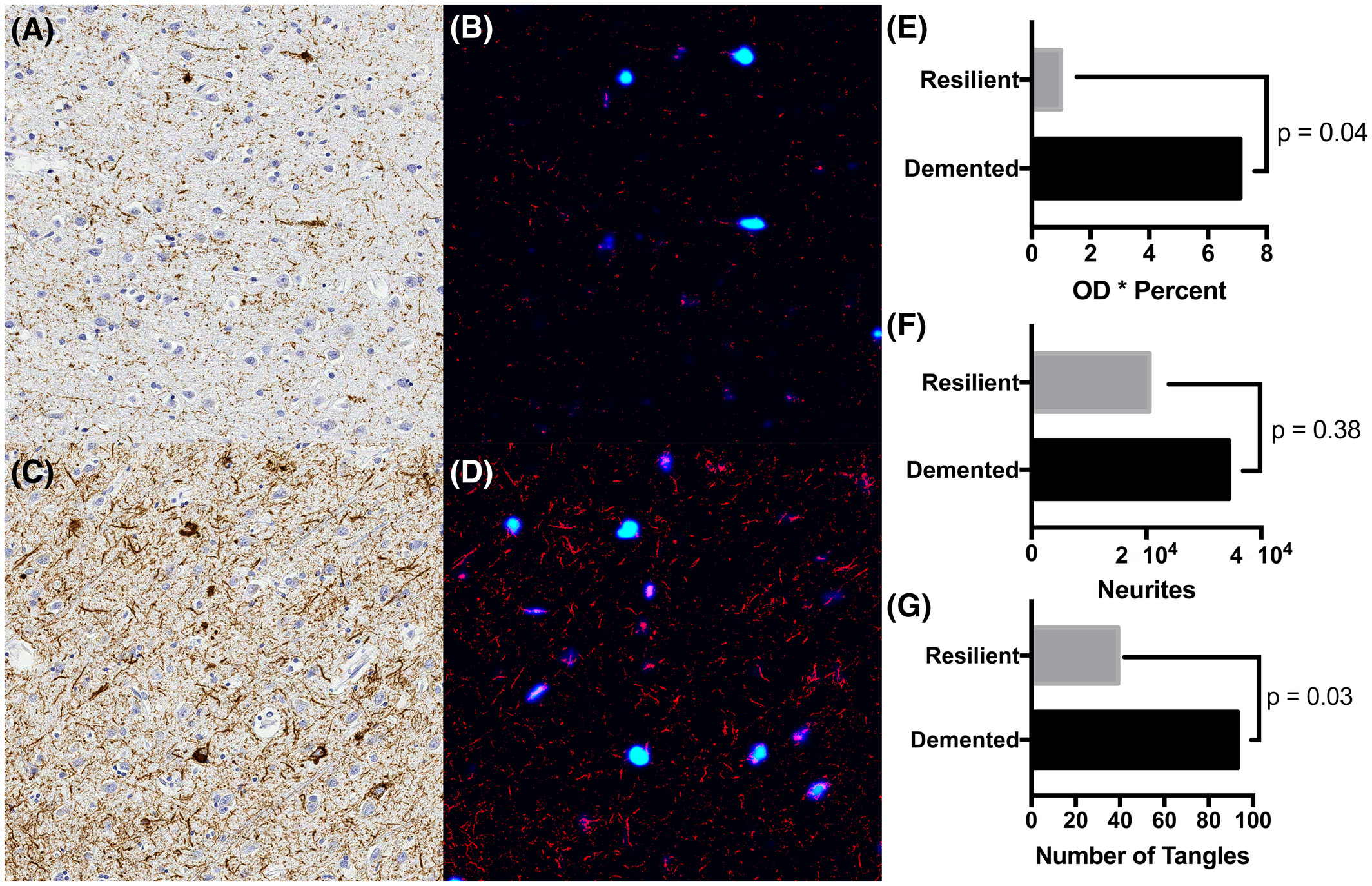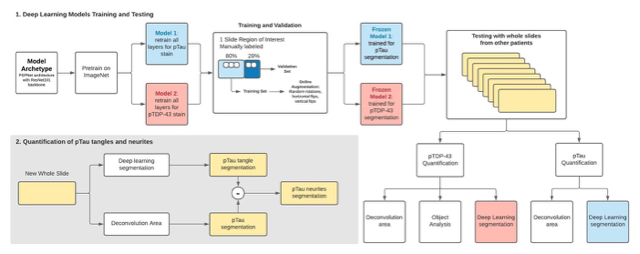The term "resilient" is used to describe the unique set of people who develop the neuropathological features of Alzheimer's disease but do not show signs of the cognitive decline that is typically associated with the disease. In this study, published in the journal Brain Pathology, Dr. Cecilia Lee and Dr. Aaron Lee used a machine learning approach to identify subtle differences in brain tissue of "resilient" patients compared to patients with Alzheimer's disease. These patients had been participants in the Adult Changes in Thought study and donated their brains for research into the causes of Alzheimer's disease and related dementias.
The authors used a machine learning approach known as deep learning, in which a computer model analyzed stained tissue slides from these patients, and quantified the pathologic lesions present. The algorithms were able to quantify the levels of phosphorylated TDP-43 (pTDP-43) and pTau , both of which accumulate in the brains of people with Alzheimer's disease. The pTau in particular can localize to two types of lesions, neurofibrillary tangles and tau neurites, and the deep learning model was able to differentiate these and find differences between the two groups of patients. Both groups had similar quantities of tau neurites, but the pTau burden associated with neurofibrillary tangles was significantly lower in the resilient group compared to the group with dementia.

This demonstrates one of the potential advantages of deep learning for this type of analysis - it was much better than traditional staining and counting techniques for these two types of Alzheimer's disease pathology. And this approach led to an interesting observation - that neurofibrillary tangles are more strongly associated with cognitive impairment than the more diffuse neuritic tau commonly seen. These findings suggest that additional factors may underlie the process through which some people are "resilient" to Alzheimer's-like changes in the brain and are able to maintain normal cognition. This study adds evidence supporting the value of deep learning approaches for discovery of novel pathological patterns, and hence insights into pathogenesis, in AD and related dementias.
Lee CS, Latimer CS, Henriksen JC, Blazes M, Larson EB, Crane PK, Keene CD, Lee AY. Application of deep learning to understand resilience to Alzheimer's disease pathology. Brain Pathology. 2021 May 19; doi.org/10.1111/bpa.12974.

